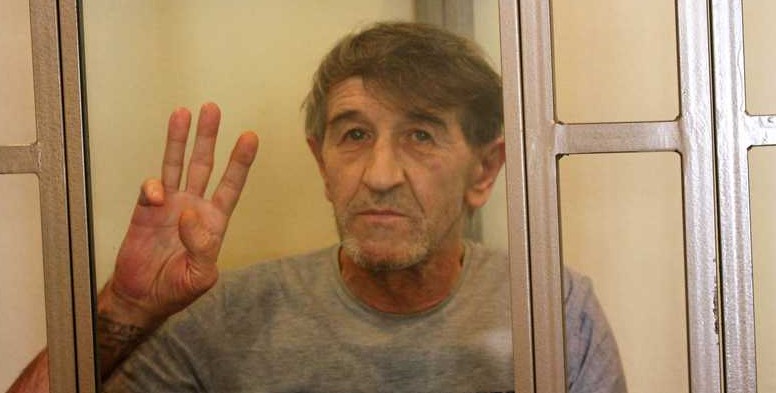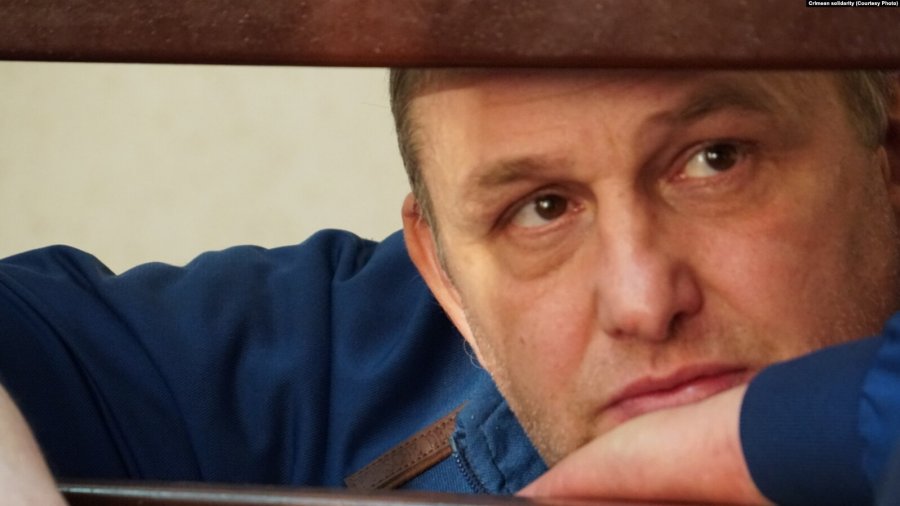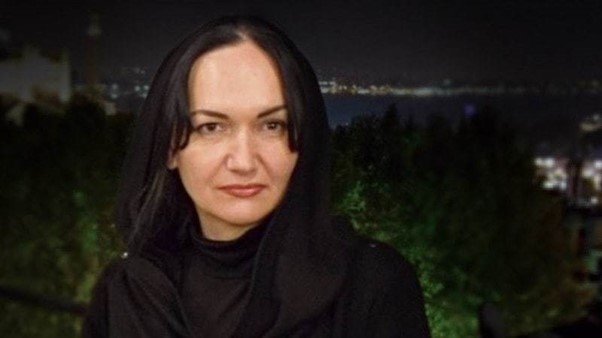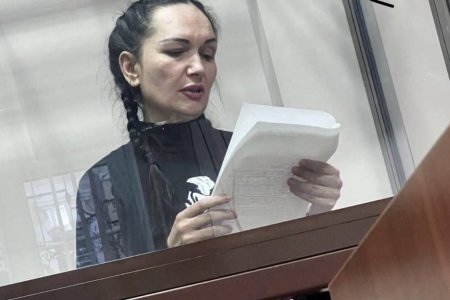
An illegal ‘court’ in Russian-occupied Crimea has sentenced 47-year-old Ihor Kopyl to 14 years’ imprisonment on ‘state treason’ charges. Russia first made it impossible to live in occupied Crimea without taking Russian citizenship, and then used that same citizenship as a weapon, enabling it to accuse a Ukrainian of ‘state treason’ against Russia.
Ihor Kopyl is from Sevastopol and, according to Russia’s FSB, is a former member of Ukraine’s Navy. He was first sentenced to six years’ imprisonment on a charge of illegally obtaining, transporting and possessing explosive devices or substances.
He was almost certainly imprisoned when the new charge of ‘state treason’ was laid. The prosecution claimed that Kopyl had been recruited for ‘confidential cooperation’ by a Ukrainian Military Intelligence officer. On instructions from this person, it was claimed that he had, from January to April 2023, videoed and passed on information about the deployment of Russian military personnel and technology and had also provided other assistance “to a foreign state with activities aimed against the security of the Russian Federation.”
The prosecution was led by Russian-installed Sevastopol ‘prosecutor’ Andrei Shevtsov, with the ‘treason trial’ before the occupation Sevastopol municipal court’, The only information about this ‘trial’ has, typically, come with the news of the sentence on 4 October 2024, with Kopyl sentenced to 14 years’ maximum-security imprisonment and a 400 thousand rouble fine.
While very little is known about Kopyl, the charges are disturbingly familiar. A significant number of Ukrainian political prisoners have, since 2014, been convicted after alleged discovery of explosives, with state treason (usually “in the form of spying”) also a strong FSB favourite. Nor would this be the first time that a Ukrainian already imprisoned, especially on such alleged possession of explosives charges, was later claimed to have also committed ‘state treason’.

It is exactly five years since Oleh Prykhodko, who had openly expressed his opposition to Russia’s occupation of his native Crimea, was arrested. It was claimed that FSB officers had ‘carried out a search’ of Prykhodko’s home on 9 October 2019 and ‘found’ explosives in a bucket in one of his two garages. Clear evidence that the charges and supposed ‘proof’ had been fabricated was ignored by the occupation ‘courts’ with Prykhodko initially sentenced to five years. Russia later presented new charges while Prykhodko was serving that first sentence in a harsh-regime Russian prison colony, with Russian courts obliging by increasing the basic five year sentence to nine and a half years. Now 65 and in poor health, Prykhodko will, if Russia has its way (and if he can survive), be 71 when freed.

Vladyslav Yesypenko was carrying out work as a journalist for RFE/RL’s Crimean Realities when seized by Russia’s FSB near Simferopol on 10 March 2021. It was claimed that the FSB had ‘found’ a grenade in his car, with neither the prosecution, nor the occupation ‘courts’ perturbed when the defence proved that the grenade did not fit in the compartment where it was alleged to have been found. The ‘courts’ showed equally little interest in Yesypenko’s retraction of his supposed ‘confession’ and detailed description of the torture used to extract it while he was held incommunicado and prevented from seeing his lawyer. This was despite the retraction being far more credible than a supposed ‘confession’ containing details about ‘working for Ukraine’s Security Service’ which were later dropped.

Iryna Danilovych, civic journalist, nurse and human rights activist, was abducted by the FSB on 29 April 2022 and held incommunicado for a week. It was only after the FSB were unable, through torture and threats, to force her into ‘confessing’ to so-called ‘state treason’ (through fictitious contacts with foreign organizations) that they came up with simply grotesque ‘explosives’ charges. They claimed to have ‘found’ the explosives in her glasses case, though no attempt was ever made to explain how she got them and, most importantly, why she was supposed to have taken them with her to a night shift at her clinic and home.

It will soon be eight years since Russia’s FSB claimed to have thwarted a ‘Crimean saboteur’ plot by seizing two renowned academics and specialists on Black Sear security, Dmytro Shtyblikov and Oleksiy Bessarabov, as well as their friend, retired Ukrainian naval captain Volodymyr Dudka. The only ‘evidence’ ever provided for the charges against Bessarabov and Dudka was, as one of the lawyers put it, “worse than in the shoddiest detective novel”. The two men were effectively sentenced to 14 years for having refused to ‘confess’ to absurd charges and because Russia’s FSB wants to regularly claim to be ‘thwarting Ukrainian plots’.
Shtyblikov, whom the FSB had designated as ‘ringleader’, was never allowed to see an independent lawyer. It was almost certainly because of torture and threats against his family that he agreed to admit to the charges and provide false testimony and, in November 2017, received a five-year sentence. Shortly before the five years were up, the FSB concocted new, evidently absurd, charges of ‘treason’, with Shtyblikov sentenced on 27 April 2022 to nineteen and a half years (counted from 9 November 2016)
All of the Ukrainians above, and many others, are recognized political prisoners whose release has been demanded by UN, EU and other international structures. Russia’s application of its legislation on occupied territory and its forced deportation of Crimean Tatars and other Ukrainians to Russia are in flagrant violation of international law. The destruction of independent media and information vacuum under Russian occupation means that it is often impossible to assess specific cases. Insufficient information cannot, however, remove serious grounds for questioning the latest ‘treason’ sentence against Ihor Kopyl.



